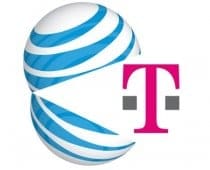 "Fool me once, shame on you; fool me twice, shame on me."
"Fool me once, shame on you; fool me twice, shame on me."
SANTA MONICA, CA — Consumer Watchdog urged U.S. and California officials yesterday to reject the proposed AT&T/T-Mobile wireless merger, calling to their attention that AT&T made the same promises of lower prices and better services before the Cingular/AT&T merger seven years ago, only to betray those promises after that merger was approved.
In a then-and-now comparison of promises made by AT&T, the group quotes language assuring T-Mobile customers that they may keep their present (and cheaper) rate plans and their current T-Mobile phones, while gaining better service.
The company made virtually identical promises in 2004. But once the 2004 merger was approved, it degraded the old AT&T network and forced AT&T customers to buy new phones and costlier plans–or be slapped with large termination fees.
Consumer Watchdog's lawyers brought a nationwide class action lawsuit against AT&T in 2006 seeking refunds for AT&T's customers. AT&T continues to fight that lawsuit in the courts.
"Federal and state officials should not even contemplate approving AT&T's purchase of T-Mobile when AT&T still hasn't paid back its customers for the huge fees and other illegal overcharges it forced people to pay when it broke its promises after the merger with Cingular back in 2004," said Harvey Rosenfield, founder of Consumer Watchdog and one of the lawyers prosecuting the lawsuit stemming from the AT&T-Cingular merger.
In a letter sent yesterday to the Federal Communications Commission, the U.S. Department of Justice and the California Public Utilities Commission, Consumer Watchdog provided a side-by-side comparison of the company's promises in 2004 and its promises today. The language is nearly identical in its assurances to consumers and regulators that the merger would cure the ills of the wireless market, from high prices to spotty service.
Read Consumer Watchdog's letter here:
http://www.consumerwatchdog.org/resources/cwd_att_merger_letter_final.pdf
(Citations and sources are in the letter)
For instance:
2004 AT&T-Cingular pre-merger promises:
"In addition to improvements in network coverage and service quality, and greater availability of enhanced service offerings, the transaction will result in a number of synergies which will benefit consumers…"
"The combination of AWS and Cingular will allow the availability of these services on a seamless, nationwide basis far more promptly than can otherwise be achieved, if they could be achieved at all, by the companies individually."
AT&T is "working to make this transition as seamless as possible for customers of AT&T Wireless."
"[C]ustomers of both companies will continue to enjoy the benefits of their current phones, rate plans, and features, without any service interruptions."
AT&T Wireless customers were assured that they would be able to "continue using their existing phones and rate plans but now have access to the largest digital voice and data network in the country."
2011 AT&T-T-Mobile pre-merger promises:
"This transaction will increase spectrum efficiency to increase capacity and output, which not only improves service, but is also the best way to ensure competitive prices and services…"
"The synergies of this transaction will create immense new capacity that will provide enormous benefits to consumers."
"We are confident in our ability to execute a seamless integration, and with additional spectrum and network capabilities we can better meet our customers' current demands…"
"Will T-Mobile customers have to get a new phone? No. Their current T-Mobile phone will continue to work fine once the transaction is complete."
"Will T-Mobile customers have to move to a new plan? Will they lose their plans? No. They will be able to keep their existing price plan."
"Once the transaction closes, T-Mobile customers will gain access to the benefits of AT&T's network."
As the group wrote:
"After the Federal Communications Commission approved the deal with negligible scrutiny, the newly merged company – which later renamed itself AT&T Mobility LLC- betrayed its promises. It abandoned the old AT&T network, deliberately degrading the network so that AT&T customers would be forced to migrate to Cingular's own network, pay an upgrade fee of $18, buy new phones and agree to new and more expensive rate plans. These anti-consumer moves were enforced by an anti-competitive 'early termination fee' of anywhere between $175 and $400, which prevented customers of AT&T from moving to another carrier.
"In short, AT&T policyholders were railroaded into spending hundreds of dollars more in order to maintain their cellular service – a colossal rip-off by the same corporate executives who are now asking for permission to do it all over again."
The 2004 merger did nothing to cure the many ills that continue to plague wireless service today, including:
Blocked and dropped calls;
Spotty service for rural residents;
Shrinking spectrum that limits wireless improvements;
Noting that AT&T is once again mounting a multi-million dollar lobbying and public relations campaign to win approval of the merger, Rosenfield said, "Public officials should not approve the AT&T/T-Mobile merger, at least not without conditions that will protect current customers against higher prices, less competition and reduced services – and require the company to repay the customers it ripped off after the last merger."
– 30 –
Visit our website: http://www.ConsumerWatchdog.org











